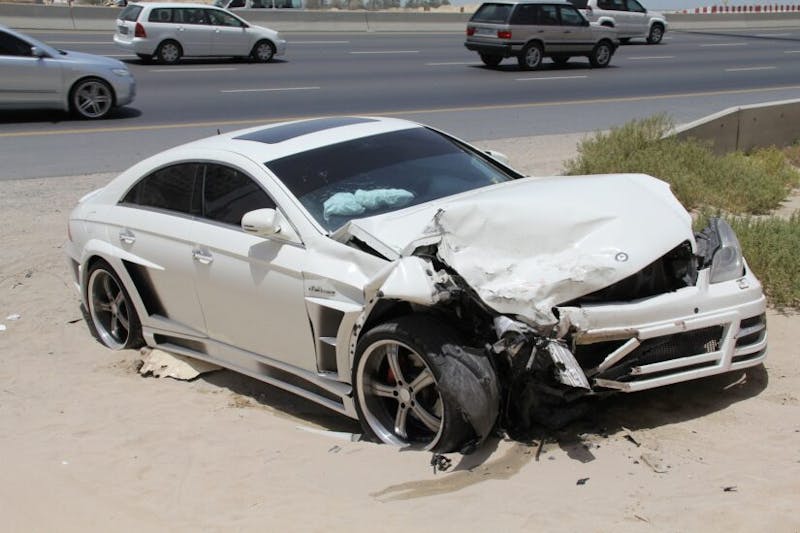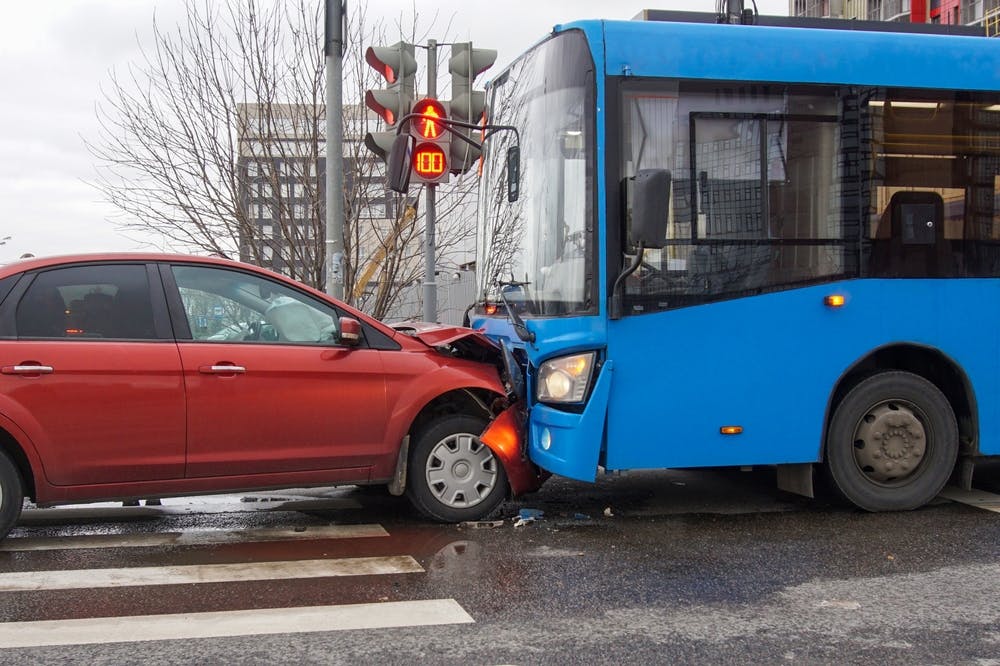
Head-on collisions are far too common. Whether drivers recklessly try to overtake or go the wrong way, head-on collisions are among the most dangerous. Many people don’t know these accidents can result in life-changing injuries, if not worse. Broken bones, crushed organs, and the risk of traumatic brain injuries as a result of an accident can impact a victim and their family forever.
What Constitutes a Head-On Collision?
A frontal crash or a head-on collision occurs when two vehicles traveling in opposite directions collide with their front ends. More often than not, this happens when a car or a truck crosses over the centerline of a road and enters the lane of approaching traffic.
These types of accidents are especially dangerous because the combined speeds of the two vehicles create a high-energy impact. The force of the collision is so powerful that it can crumple the metal of the vehicle and crush its structure in a matter of seconds.
If you involved in a head-on collision and have questions reach out to our Atlanta motor vehicle accident attorney today.
What Are the Most Common Causes of Head-On Collisions?
In Georgia, the following reasons are common culprits behind front-end crashes:
- Distracted driving: When drivers take their attention away from the road due to texting, talking on the phone, adjusting the radio, etc., they can drift into traffic.
- Impaired driving: Being under the influence of drugs or alcohol means the driver’s judgment and coordination get compromised. This can cause them to drift into oncoming traffic.
- Reckless driving: Tailgating, weaving between lanes, and disregarding traffic signals are major reasons for head-on collisions.
- Inexperienced drivers: People who have just learned to drive may struggle to handle themselves on challenging road situations, like sharp curves or merging onto highways, increasing the risk of crossing into traffic.
- Fatigue: Driving when tired or sleepy can be just as bad as driving under the influence as a person can fall asleep at the wheel.
- Speeding: Driving at excessive speed takes away reaction time and makes it that much harder for drivers to avoid oncoming vehicles, especially on curvy or narrow roads.
- Poor weather: Rain, fog, ice, and snow can make it harder to see what is ahead, not to mention it makes roads slippery, which increases the chances of losing control.
- Mechanical failures: Tire blowouts, malfunctioning brakes, and other problems with your car can also make you lose control and swerve into the path of other vehicles.
How Is Fault Determined in a Head-On Collision in Georgia?
Regardless of why it happened, the most important question that arises in the aftermath of an accident is “Who is at fault?” This is important for your insurance claim, but also for legal proceedings if anyone has been injured or there are any fatalities.
Your first step should be to call 911. Either call law enforcement officers yourself, or if you are too injured to, have someone else call them. They will start conducting the investigation into what happened as soon as they arrive on the scene. As part of their process, they will:
- Talk to witnesses who saw the accident.
- Study the tire marks left by the vehicles when they braked or went off course. These skid marks can show how fast the vehicles were going and if they tried to stop before the collision.
- Look at how the vehicles are damaged to learn how the cars hit each other and from which direction.
The officers will also investigate whether the drivers were going too fast, texting, or doing something else instead of paying attention to the road. All this information they collect forms the basis for determining who was at fault. If they find that one driver did something wrong, like speeding or DUI, their official report might say exactly that.
Every driver, whether they are driving a car or motorcycle, has a responsibility to be careful and follow the rules of the road. That is what we call a duty of care. When they breach their duty and cause an accident, they can be considered negligent. If a driver is found to be negligent and their negligence led to the collision, they can be held legally responsible for your damages.
How Comparative Fault and Shared Liability Can Affect Your Claim
If you were injured in an accident and it’s crystal clear the other driver is to blame, everything is straightforward. But what if you share some blame? Can you still recover some compensation? Yes, you can – as long as your part in the crash is less than 50%.
Georgia follows a “modified comparative negligence” system. This means the law considers the degree of fault or negligence of all parties involved. This includes both the injured party and the party at fault.
Importantly, there’s a threshold for recovery based on comparative negligence. If you are 50% or more at fault for the accident, you are unlikely to obtain any compensation for your losses. But if your fault is less than 50%, you can still recover damages, but the amount will be reduced by your percentage of fault. For example, if the court determines you to be 20% at fault, your compensation will be reduced by 20%.

How We Can Help
Having a skilled car accident attorney to negotiate on your behalf is important in personal injury cases. At The Pendergrass Law Firm, we will collect strong evidence to effectively establish the liability of the negligent party. The evidence may include physical and forensic evidence from the crash site, photos and videos, eyewitness accounts, cell phone records, traffic and business camera footage, expert witnesses, and more. An attorney increases your chances of securing maximum compensation for your injuries.
To schedule your free consultation, reach out to The Pendergrass Law Firm at (404) 737-0822 or leave us a message here.


